Advertisements
Advertisements
Question
A roller of diameter 0.9 m and the length 1.8 m is used to press the ground. Find the area of the ground pressed by it in 500 revolutions.
`(pi=3.14)`
Solution
Diameter = 0.9 m ∴r = 0.45 m
Height =1.8 m
Number of rotations = 500
Area of the ground pressed by the roller in one rotation = curved surface area of the roller.
= `2pi "rh"`
= 2 × 3.14 × 0.45 × 1.8
= 5.0868 m2
∴ Area of the ground pressed by the roller in 500 rotations.
= 500 × 5.0868 m2
= 2543.4 m2
∴ Area of the ground pressed by the roller is 2543.4 m2
APPEARS IN
RELATED QUESTIONS
In the following figure RP: PK= 3:2, then find the value of A(ΔTRP):A(ΔTPK).

Base of a triangle is 9 and height is 5. Base of another triangle is 10 and height is 6. Find the ratio of areas of these triangles.
In the given figure, BC ⊥ AB, AD ⊥ AB, BC = 4, AD = 8, then find `("A"(∆"ABC"))/("A"(∆"ADB"))`
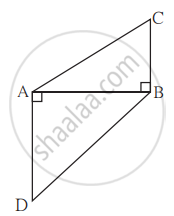
In trapezium ABCD, side AB || side DC, diagonals AC and BD intersect in point O. If AB = 20, DC = 6, OB = 15 then Find OD.
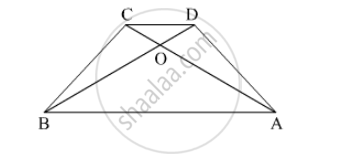
In ∆ABC, B - D - C and BD = 7, BC = 20 then find following ratio.
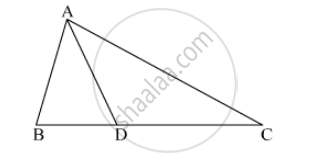
`"A(∆ ABD)"/"A(∆ ADC)"`
In the figure, PM = 10 cm, A(∆PQS) = 100 sq.cm, A(∆QRS) = 110 sq. cm, then find NR.
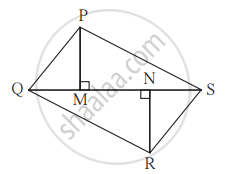
In ∆ABC, B – D – C and BD = 7, BC = 20, then find the following ratio.
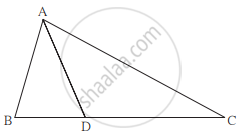
`(A(∆ABD))/(A(∆ABC))`
In ∆ABC, B – D – C and BD = 7, BC = 20 then Find following ratio.

\[\frac{A\left( ∆ ADC \right)}{A\left( ∆ ABC \right)}\]
In the given, seg BE ⊥ seg AB and seg BA ⊥ seg AD.
if BE = 6 and AD = 9 find `(A(Δ ABE))/(A(Δ BAD))`.
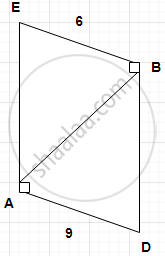
If ΔXYZ ~ ΔPQR then `"XY"/"PQ" = "YZ"/"QR"` = ?
Areas of two similar triangles are in the ratio 144: 49. Find the ratio of their corresponding sides.
Ratio of corresponding sides of two similar triangles is 4:7, then find the ratio of their areas = ?
In fig. BD = 8, BC = 12, B-D-C, then `"A(ΔABC)"/"A(ΔABD)"` = ?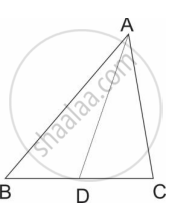
Prove that, The areas of two triangles with the same height are in proportion to their corresponding bases. To prove this theorem start as follows:
- Draw two triangles, give the names of all points, and show heights.
- Write 'Given' and 'To prove' from the figure drawn.
